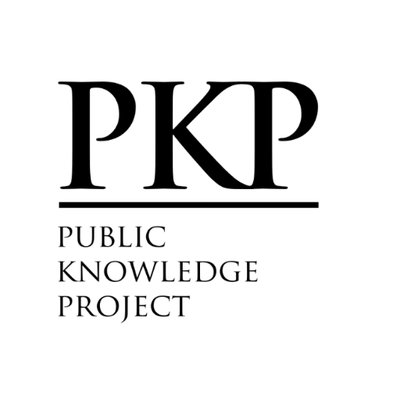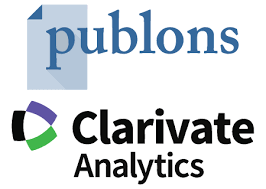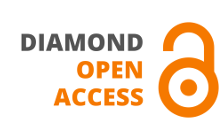An empirical analysis of the effects of auditor behavior on the quality of their services
the case of Cameroon
DOI:
https://doi.org/10.59051/joaf.v10i2.160Keywords:
Behavior of auditors, index of the quality of auditing, agency theoryAbstract
This article has two objectives. The first is to build an index of audit quality which can distinguish auditing firms carrying out a good quality auditing from those carrying out bad quality auditing. The second seeks to determine if there is a relationship between the behavior of the producers of opinion and the index quality of auditing built. To achieve these objectives, we use questionnaires to collect data on 60 auditing companies in Cameroon. The results of the application of factorial analysis (PCA), Pearson correlation and logistic regression to the data show that the quality of auditing is eroded in Cameroon because a large proportion of auditing firms carry out bad quality auditing (53,3%). We also find that this bad quality auditing is the result of the behavior of auditors (they work on the elements which they consider significant, they practice incompatibilities in the service, they do not respect the time budget, and lack experience).
Downloads
References
Alderman, C. W., Deitrick, J. W., (1982). Auditors’ perceptions of time budget pressures and premature sign-offs: a replication and extension Auditing: A Journal of Practice and Theory 1 (2):54-68.
Ammar, S., (2006). La compétence de l’auditeur comptable vue par les experts comptables. 27ème congrès annuel de l’Association Francophone de Comptabilité.
Audousset-Coulier, S., (2008). La publication des honoraires d’audit par les sociétés cotées françaises : deux études de déterminants. Les déterminants du caractère volontaire de la publication des honoraires d’audit et les déterminants du montant des honoraires d’audits publiés. Doctorat en Sciences de Gestion, Paris : Ecole des Hautes Etudes Commerciales de Paris.
Bazerman, M. H., Morgan, K. P., Loewenstein, G. F., (1997). The impossibility of Auditor Independence. Sloan Management Review 38 89-94.
Behn, B. K., Carcello, J. V., Hermanson, D. R., Hermanson, R. H., (1997). The determinants of audit client’s satisfaction among client of big six firms. Accounting Horizons 11 (1):7-24.
Bell, T., Caushalli, M., Knechel, R. (2012). Audit firm tenure, non-audit services and internal assessments of audit quality. Presentation at the Katholicke Universiteit Leuven Belgium. International symposium on Auditing Research.
Bell, T. B., Marrs, F. O., Solomon, I., Thomans, H. (1997). Auditing organization through a strategic-systems lens. The KPMG Business Measurement Process.
Bennecib, F., (2004). De l’efficacité du co-commissariat aux comptes. Doctorat en sciences de Gestion, Université Paris IX Dauphine.
Bertin, E., (2001). Faire de la recherche en audit : Bilan et perspectives. Cahier de recherche, Université de Tours.
Blokdijk, H., Drieenhuizen, F., Simunic, D. A., Stein, M. (2006). An analysis of cross-sectional differences in Big and non public accounting firms audit programs. Auditing: A Journal of Practice and Theory 25 27-48.
Bouaziz, F., (2008). Les compétences comportementales dans les missions de commissariat aux comptes : identification et développement. Mémoire pour l’obtention du diplôme national d’expert comptable, Université du Sud, SFAX.
Carassus, D., Cormier, D., (2003). Normes et pratiques de l’audit externe légal en matière de prévention et de détection de la fraude. Comptabilité-Contrôle-Audit 9 (1) :171-188.
Carcello, J. V., Hermanson, R. H., Mcgrath, N. T. (1992). Audit Quality Attributes: The Perceptions of Partners, Preparers, and Financial Statement Users. Auditing: A Journal of Practice and theory 11 (1): 1-15.
Carcello, J. V., Nagy, A. L., (2004). Audit Firm tenure and Fraudulent Financial reporting. AUDITING: A Journal of Practice and Theory 23 (2): 55-69.
Chan, P., Ezzamel, M., Gwilliam, D., (1993). Determinants of audit fees for quoted UK companies. Journal of Business Finance and Accounting 20 (6): 765-786.
Charpateau, O., (2007). Ethique de l’auditeur et capacité à révéler une erreur : comparaison des auditeurs financiers et opérationnels. Publié dans Comptabilité et Environnement.
Chemangui, M., (2004). Conceptualisation et validation d’une échelle de mesure de la qualité des travaux d’audit externe et interne : Application selon la démarche du paradigme de Churchill. Doctorat en Sciences de Gestion, Besançon : Université de Franche-Comté.
Chen, C., Lin, C., Lin, Y., (2008). Audit partner tenure, audit firm tenure, and discretionary accruals: Does long auditor tenure impair earnings quality? Contemporary Accounting research 25 (2): 415-445.
Citron, D. B., Taffler, R. J., (1992). The Audit Report Under going concern Uncertainties: an Empirical Analysis. Accounting and Business research 88 337-345.
Colasse, B., (2003). Auditer une mission impossible? In Public Accounting Organizations and Society 10 (2): 149-169.
Cook, E., Kelley, T., (1998). Auditor stress and time budgets. The CPA Journal 58 (7): 83-86.
Cook, E., Kelly, T. (1991). An International Comparison of Time Budget Pressures: The United States and New Zealand. The Woman CPA 53 (2): 25-30.
Coram, P., Ng, J., Woodliff, D. R., (2003). A survey of time budget pressure and reduced audit quality among Australian auditors. Australian Accounting Review 13 38-44.
Correia, L. F., Amaral, H. F., Louvet, P., (2009). Un indice de gouvernance pour les entreprises au Brésil. Communication présentée au 5ème colloque de l’IFBAE, Grenoble, France.
Dalton, T., Kelley, T., (1997). A comparison of dysfunctional behaviors by tax accountants and auditors under time budget pressure. Advanses in Accounting 15 193-208.
David, C. H., Knechel, W. R., Normn, W. (2006). Audit fees: A meta-analysis of the effect supply and demand attributes. Contemporary Accounting Research 23 (1): 141-191.
De Angelo, L. E., (1981a). Auditor Size and Audit Quality. Journal of Accounting and Economic 3 183-199.
Deis, D. R., Giroux, G. A., (1992). Determinants of Audit Quality in the Public Sector. The Accounting Review 67 (3): 462-479.
Djongoue, G., (2007). Fiabilité de l’information comptable et gouvernance d’entreprise : une analyse de l’audit légal dans les entreprises camerounaises. Communication au Colloque international sur la gouvernance : quelles pratiques pour promouvoir le développement économique de l’Afrique. Lille, novembre.
Djoutsa Wamba, L., Foka Tagne, A., (2014). Le comportement des audités : quel effet sur la qualité de service rendu par les cabinets d’audit au Cameroun ? Revue Gestion et Organisation 6 (2): 89-99.
Djoutsa Wamba, L., Hikkerova L., (2018). Does Shareholder-oriented corporate governance reduce firm risk? Evidence From listed European companies. Journal of Applied Accounting Research 19 (2): 295-311.
Donnelly, D. P., O’Bryan, D., Quirin, J. J., (2003). Auditor acceptance of dysfunctional audit behaviour: an explanatory model using auditors’ personal characteristics. Behavioral research in Accounting 15 87-110.
Evrard, Y., Pras, B., Roux, E., (2000). Market : Etudes et recherches en marketing, fondements et méthodes. 2ème edition, Paris: Dunod.
Flint, D., (1988). Philosophy and Principles of Auditing. London, Macmillan Education.
Foka Tagne, A. G., Ndassi Yepgnou, J., Kamdem, D., (2017). Les honoraires incitatifs au cœur d’une réflexion sur la qualité d’audit en Afrique subsaharienne francophone. Journal of Academic Finance 8 (1): spring 2017 93-110.
Foka Tagne, A. G., Hikouatcha Kenfack, P. D., Mbaduet, J. F., Ndassi Yepgnou, J., (2018). Qualité d’audit, concentration de l’actionnariat et reporting financier : une étude auprès des préparateurs des comptes au Cameroun. Journal of Academic Finance 9 (1): spring 2018 27-54.
Francis, J. R., Bin, K. (2006). Disclosure of fees paid to auditors and the market valuation of earnings surprises. Review of Accounting Studies 11 (4): 495-523.
Francis, T., Hanna, D., Vincent, L., (1996). Causes and effects of discretionary asset write-offs. Journal of Accounting Research 34 117-134.
Gaddour, I., (2013). Contribution à l’étude des comportements dysfonctionnels des auditeurs seniors : une approche managériale (le cas Français). Publié dans Comptabilité sans Frontières.
Gandja, S. V., (2014). Audit légal et perception de la qualité des travaux dans une économie en développement. Comptabilité sans Frontières 1-27,https://hal.archives-ouvertes.fr/hal-00999706.
Gonthier, N. B., (2011). L’impact des changements réglementaires récents sur la qualité perçue de l’audit : une étude exploratoire auprès des préparateurs d’information financière. Comptabilité, Economie et Société 1-36.
Hay, D., Knechel, W. R., Ling, H., (2008). Evidence of the impact of internal control and corporate governance on audit fees. International Journal of Auditing 12 9-24.
Herrbach, O., (1999). Qualité et réduction de qualité en audit financier : le comportement des collaborateurs de cabinets. 20ème congrès de l’Association Francophone de Comptabilité.
Herrbach, O., (2000). Le comportement au travail des collaborateurs de cabinets d’audit financier : une approche par le contrat psychologique. Doctorat en Sciences de Gestion, Toulouse : Université des Sciences Sociales.
Hottegindre, G., Lésage, C., (2007). Un mauvais auditeur : dépendant et/ou incompétent ? Etude exploratoire des motifs de condamnation des commissaires aux comptes en France. 28ème Congrès de l’Association Francophone de comptabilité, Poitiers.
IFAC (1998). Code d’éthique des professionnels comptables, principes fondamentaux.
Jarworski, B. J., Young, S. M., (1992). Dysfunctional behavior and management control: Anempirical study of marketing managers. Accounting, Organizations and Society 17 (1): 17-35.
Jensen, M., Meckling, W., (1976). Theory of the firm: Managerial behavior, agency costs and ownership structure. Journal of Financial Economics 3 305-360.
Kasigwa, G., Munene, J. C., Ntayi, J., Nkote, I., (2013). The reduce Audit Quality behavior of Auditors in Uganda. African Journal of Accounting Economics, Finance and Banking research 9 (9): 1-13.
Kelley, T., Margheim, L., (1990). The impact of Time budget Pressure, Personality and Leadership Variables on Dysfunctional Behavior. Auditing. A journal of Practice and Theory spring 21-41.
Kelly, T., Seiller, R. E., (1982). Audit stress and times budgets. The CPA Journal 24-34.
Kennedy, P., (1985). A guide to econometrics. Second edition, The MIT press, Cambridge.
Koubaa, R., Jarboui, A., (2014). L’impact de l’éthique de l’audit externe sur la qualité de l’information. 13ème conférence Internationale de gouvernance de l’Association Académique Internationale de Gouvernance.
Krishnakumar, J., Nagar, A. L. (2008). On exact statistical properties of multidimensional indices based on principal components, factor analysis, MIMIC and structural equation models. Social Indicators research 86 (3): 481-496.
Kustinah, S., (2013). The influence of dysfunctional behavior and individual culture on audit quality. International Journal of Scientific and Technology research 2 (5): 1-8.
Lajmi, A., Rabah Gana, M., (2012). Structure de propriété et qualité de l’audit externe : cas des entreprises belges cotées. Gestion 2000 29 83-97.
Lee, T. (1993). Corporate Audit Theory. First edition, Chapman et Hall, London.
Lennox, C. S., (1999). Audit quality and auditor size: an evaluation of reputation and deep pockets hypotheses. Journal of business finance and Accounting 26 (7/8): 779-805.
Libby, R., Frederick, D. M., (1990). Experience and the ability to Explain Audit findings. Journal of Accounting Research 348-367.
Libby, T., Thorne, L., (2004). The identification and categorization of auditors’ virtues. Business Ethics Quarterly 14 (3): 479-498.
Lightner, S. M., Adams, S. J., Lightner, K. M., (1982). The Influence of Situational. Ethical and Expectancy Theory Variables on Accountants’ Underreporting behavior. Auditing, A Journal of Practice and Theory 2 1-12.
Loyer, P., (2006). L’indépendance des auditeurs financiers: une approche des facteurs déterminants. Doctorat en Sciences de Gestion, Université des sciences technologiques de Lille 1.
Malone, C. F., Roberts, R. W., (1996). Factors associated with the incidence of reduced audit quality behaviors, Auditing. A Journal of Practice and Theory 15 49-64.
Manita, R., Chemangui, M., (2007). Les approches d’évaluation et les indicateurs de mesure de la qualité d’audit : « une revue critique ». Actes du 28ème congrès annuel de l’Association francophone de Comptabilité.
Manita, R., (2009). La qualité du processus d’audit : une étude empirique sur le marché tunisien. In la place de la dimension européenne dans la Comptabilité-Contrôle-Audit, France.
Manita, R., Pigé, B., (2006). La notion par les administrateurs des composantes de la qualité du processus d’audit. Association Francophone de Comptabilité.
Margheim, L., pany, K., (1986). Quality Control, Premature Signoff and underreporting of Time: Some Empirical Findings. Auditing: A journal of Practice and theory 50-63.
Matsumura, E. M., Tucker, R. R., (1995). Second Partner Review: An Analytical model. Journal of Accounting Auditing and finance 173-200.
Mautz, R. K., Sharaf, H. A., (1961). The Philosophy Auditing. American Accounting Association Sarasota.
Mballa Atangana, y. V., Feudjo, J. R., (2016). Peut-on faire confiance aux états financiers ? Le cas de 8 entreprises camerounaises. 1èete Journée d’Etude Africaine en comptabilité et contrôle (JEACC) tenue à Dakar le 15 décembre.
McNair, C. J., (1991). Proper compromises: the management control dilemma in public accounting and its impact on auditor behaviour. Accounting, Organizations and Society 16 635-53.
Moizer, P. (1997). Auditor reputation: the International empirical evidence. International Journal of Auditing 1 (1): 61-74.
Moungou Mbenda, S. P., Niyonsaba sebigunda, E., (2015). Efficacités des mécanismes de gouvernance des PME : une évaluation empirique en contexte camerounais. Revue internationale des PME, 28 (1) : 57-85.
Nagar, A. L., Basu, S. R., (2002). Weighting socio-economic indicators of human development: a latent variable approach. In: ULLAH et al. (org), handbook of applied econometrics and statistical inference, New York: Marcel Dekker, cap; 29.
Nasrullah, D., (2003). Factors Affecting the Quality Audit In public Sector And Some characteristics to increase it.
Ndjetcheu, L., (2013). Mécanismes de gouvernance et pérennité des établissements de micro finance (EMF) de 2ème catégorie au Cameroun : une approche par le contrôle externe. Colloque sur la Micro finance.
Omri, M. A. B., Akrimi, N. A., (2014). Les facteurs d’influence de l’indépendance de l’auditeur externe : une étude exploratoire auprès des préparateurs de l’information financière tunisiens. Revue Gestion et Organisation 6 (2) : 67-74.
O ‘Sullivan, N., (2000). The impact of board composition and ownership on audit quality: evidence from large UK companies, British Accounting Review 32 397-414.
O ’Sullivan, N., Percy, M., Stewart, J., (2008). Australian evidence on corporate governance attributes and their association with forward-looking information in the annual report. Journal of Management and governance 12 (1): 5-35.
Otley, D. T., pierce, B. J., (1995). The control problem in public accounting firms: an empirical study of the impact of leadership style. Accounting, Organizations and Society 20 (5): 405-420.
Otley, D. T., Pierce, B. J., (1996a). Auditor time budget pressure: consequences and antecedents. Accounting. Auditing and Accountability Journal 9 (1): 31-58.
Otley, D. T., Pierce, B. J., (1996b). The operation of control systems in large auditing firms. Auditing. A journal of Practice and Theory 15 (2): 65-84.
Paino, H., Ismail, Z., Smith, G. M., (2010). Dysfunctional Audit Behavior: An Exploratory Study in Malaysia. Asian Review of Accounting 18 (2): 162-173.
Palmrose, Z. V., (1988). Analysis of auditor litigation and audit service quality. Accounting review 63 (1): 55-73.
Pierce B., Sweeney, B., (2004). Cost-quality conflict in audit firms: An empirical investigation. The European, Accounting Review 13 (3): 415-441.
Piot, C., (2001). Agency costs and audit quality: evidence from France. European Accounting Review 10 (3): 461-499.
Prat dit Hauret, C., (2003). Audit et développement moral cognitive. Finance-Contrôle-Stratégie 3 117-136.
Rapport de la chambre des comptes de la cour suprême de 2013.
Rapport de la Commission Nationale Anti-Corruption (CONAC) de 2013.
Rhode, J., (1978). The Independent Auditor’s Work Environment: A Survey. New York: AICPA.
Richard, C., (2001). La compétence relationnelle de l’auditeur : du partage du savoir explicite et tacite. Les cahiers de l’audit, Revue d’opinion de la CNCC (12) :44-48.
Richard, C., (2003). L’indépendance de l’auditeur : pairs et manques. Revue Française de Gestion 6 (147) : 119-131.
Sakka, A., (2010). L’auditeur complice ou victime de l’audité ? Publié dans N/P.
Sakka, A., Manita, R., (2011). Les comportements de l’audité affectant la qualité de l’audit : une étude exploratoire sur le marché français. Publié dans Comptabilité, Economie et Société, Montpellier, France.
Sangué-Fotso, R., (2011). L’efficacité de la structure de contrôle des entreprises camerounaises. Doctorat en Sciences de Gestion, Université de Franche-Comte.
Sangué-Fotso, R., (2015). Qualité de l’audit et réduction des scandales financiers en contexte camerounais. Revue de Management et de Stratégie 2 (1) : 1-17.
Sikka, P., Puxty, A., Willmott, H., Cooper, C., (1998). The impossibility of eliminating the expectations gap: some theory and evidence. Critical Perspectives on Accounting 9 299-330.
Simunic, D., Stein, M. (1987). Product Differentiation in Auditing: Auditor Choice in the Market for Unseasoned New Issues. The Canadian Certified General Accountants’ Research Foundation.
Stanley, J. D., DeZoort, F. T., (2007). Audit firm tenure and financial restatements: An analysis of industry specialization and fee effects. Journal of Accounting and Public Policy 26 (2): 131-159.
Tan, H. T., (1995). Effects of Expectations, Prior Involvement, and Review Awareness on Memory for Audit Evidence and Judgment. Journal of Accounting Research spring 33 (1): 113-135.
Tirta, R., Sholihin, D., (2004). The Effect of Experience and Task-Specific Knowledge on Auditors’ Performance in Assessing A Fraud Case. JAAI 8 (1): 1-21.
Tondeur., H., (2003). Les déterminants de la qualité des missions de commissariat aux comptes. Cahier de recherche, IAE de Lille.
Vu, V. H. T., Causse, G., (2011). Les dimensions de la performance des cabinets d’audit selon les auditeurs : tentative d’explication théorique. Comptabilités, Economie et Société 1-21.
Watts, R. L., Zimmerman, J. L., (1983). Agency problems, auditing and the theory of the firm: some evidence. Journal of Law and Economics 26 (3): 613-634.
Watts, R. L., Zimmerman, J. L., (1986). Positive Accounting Theory, Prentice-Hall, Contemporary Topics in accounting series Englewood Cliffs, New Jersey.
Downloads
Published
How to Cite
Issue
Section
License
Copyright (c) 2019 Alain Gilles FOKA TAGNE

This work is licensed under a Creative Commons Attribution-NonCommercial-NoDerivatives 4.0 International License.
Authors who publish with this journal agree to the following terms:
- Authors retain copyright and grant the journal right of first publication with the work simultaneously licensed under a Creative Commons Attribution License that allows others to share the work with an acknowledgement of the work's authorship and initial publication in this journal.
- Authors are able to enter into separate, additional contractual arrangements for the non-exclusive distribution of the journal's published version of the work (e.g., post it to an institutional repository or publish it in a book), with an acknowledgement of its initial publication in this journal.
- Authors are permitted and encouraged to post their work online (e.g., in institutional repositories or on their website) prior to and during the submission process, as it can lead to productive exchanges, as well as earlier and greater citation of published work (See The Effect of Open Access).






















